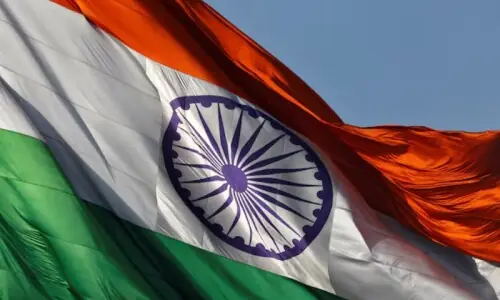Frequent threats and inflammatory remarks from senior Indian officials towards Pakistan are ensuring that the doors of dialogue remain firmly shut for the foreseeable future, with a climate of toxicity continuing to dominate South Asia’s geopolitical landscape.
Following the Pahalgam episode, India’s BJP-led government has gone into overdrive to demonise Pakistan, strongly amplified by hawkish elements in the Indian media. Observers believe that India’s frustration stems from its lacklustre performance during the May skirmishes, the international community’s reluctance to accept New Delhi’s anti-Pakistan narrative, and Islamabad’s successful diplomatic efforts.
In an apparent bid to cover up these shortcomings, Indian political and military leaders have resorted to saber-rattling. The Indian army chief, addressing his troops, warned that India “would not show restraint” and that “the opportunity will come soon,” openly threatening Pakistan. Meanwhile, the Indian air chief claimed that Indian forces had shot down several Pakistani jets during Operation Sindoor — a statement for which no evidence exists.
This aggressive posturing mirrors the rhetoric of Indian political leadership. During last month’s UN General Assembly session, Prime Minister Shehbaz Sharif defended Pakistan’s military actions during the May clashes and reiterated an offer of “comprehensive dialogue” with India. In contrast, India’s foreign minister used the same platform to label a “neighbour” as the “epicentre of global terrorism,” a thinly veiled reference to Pakistan. Further inflaming tensions, the Indian prime minister described his country’s Asia Cup victory as “Operation Sindoor on the games field.”
Many commentators argue that such hostility serves domestic political purposes in India, particularly by appealing to the hardline Hindutva base and rallying votes in upcoming elections, such as the Bihar state polls next month.
Whatever the political calculus, India’s ill-advised rhetoric is pushing the possibility of peace further out of reach. Unlike in the past, when hawkish elements in Pakistan often resisted engagement, it is now the Indian state itself—backed by far-right groups and a compliant media—that is driving confrontation and isolation.
Peace in South Asia can only be achieved through dialogue and mutual respect. Once New Delhi realises that attempts to demonise Pakistan will not succeed, it is welcome to return to the negotiating table. Until then, Pakistan must remain vigilant and prepared to defend its sovereignty, as it did during India’s unprovoked aggression earlier this year.

